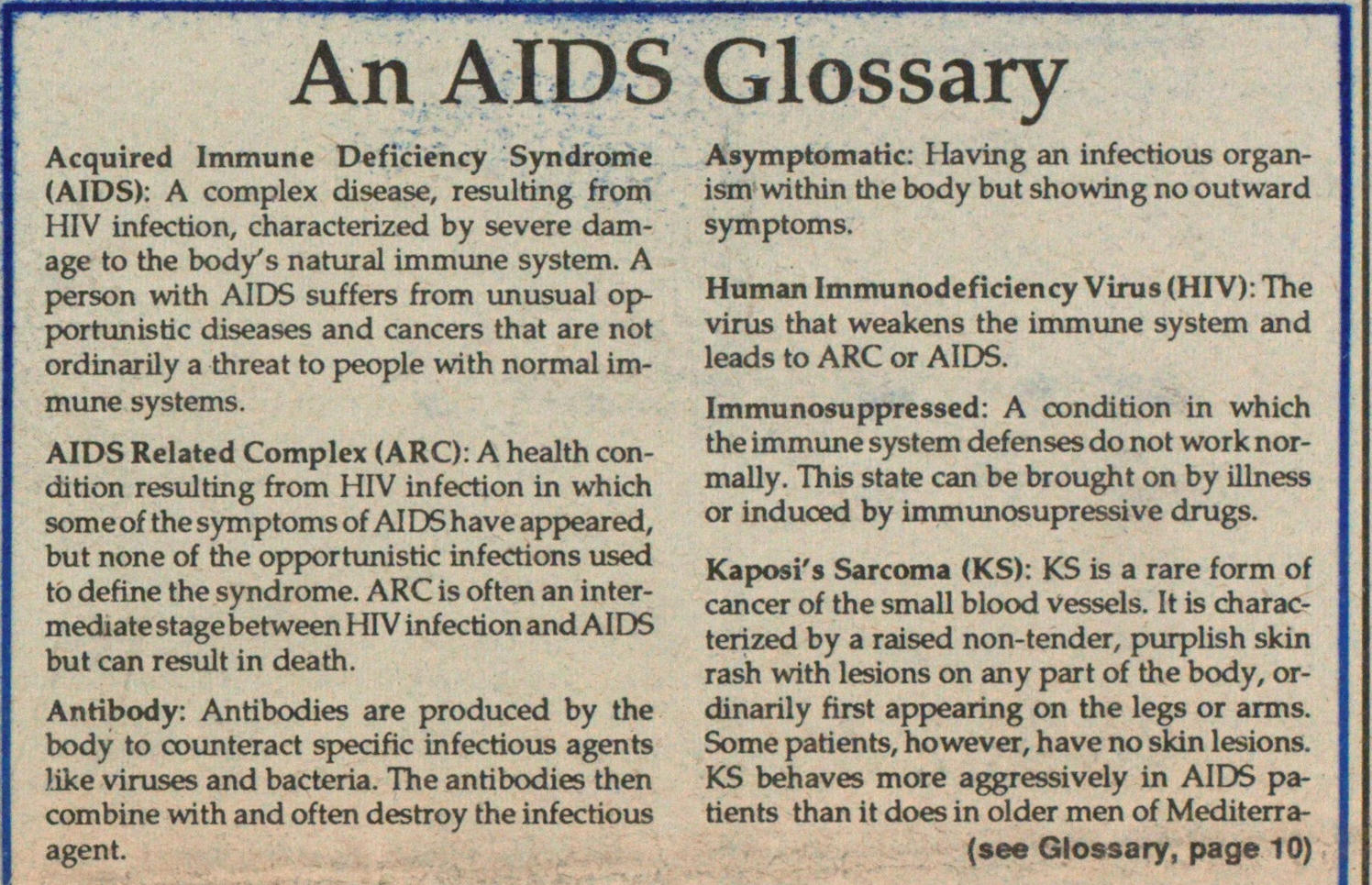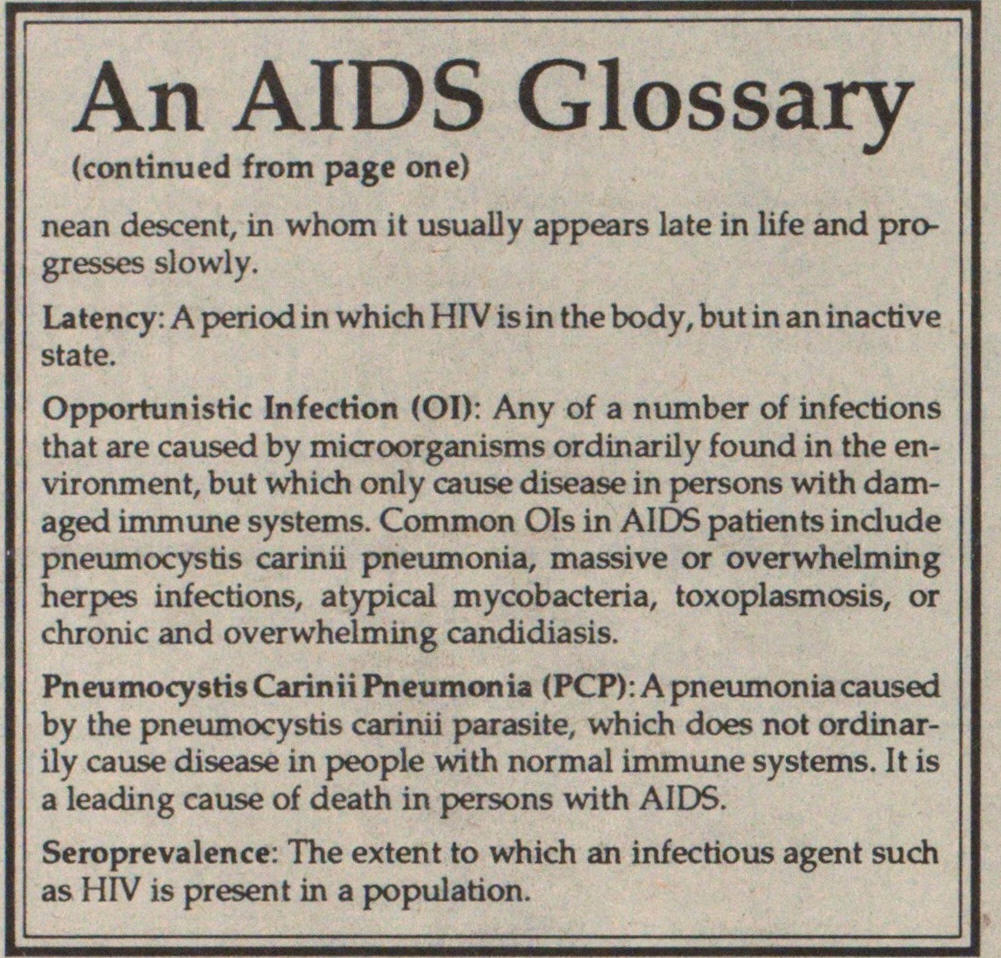An AIDS Glossary


Acquired Immune Deficiency Syndrome (AIDS): A complex disease, resulting from HIV infection, characterized by severe damage to the body's natural immune system. A person with AIDS suffers from unusual opportunistic diseases and cancers that are not ordinarily a threat to people with normal immune systems.
AIDS Related Complex (ARC): A health condition resulting from HIV infection in which some of the symptoms of AIDS have appeared, but none of the opportunistic infections used to define the syndrome. ARC is often an intermediate stage between HIV infection and AIDS but can result in death.
Antibody: Antibodies are produced by the body to counteract specific infectious agents like viruses and bacteria. The antibodies then combine with and often destroy the infectious agent.
Asymptomatic: Having an infectious organism within the body but showing no outward symptoms.
Human Immunodeficiency Virus (HIV): The virus that weakens the immune system and leads to ARC or AIDS.
Immunosuppressed: A condition in which the immune system defenses do not work normally. This state can be brought on by illness or induced by immunosupressive drugs.
Kaposi's Sarcoma (KS): KS is a rare form of cancer of the small blood vessels. It is characterized by a raised non-tender, purplish skin rash with lesions on any part of the body, ordinarily first appearing on the legs or arms. Some patients, however, have no skin lesions. KS behaves more aggressively in AIDS patients than it does in older men of Mediterra-
(see Glossary, page 10)
An AIDS Glossary
(continued from page one)
nean descent, in whom it usually appears late in life and progresses slowly.
Latency: A period in which HIV is in the body, but in an inactive state.
Opportunistic Infection (OI): Any of a number of infections that are caused by microorganisms ordinarily found in the environment, but which only cause disease in persons with damaged immune systems. Common OIs in AIDS patients include pneumocystis carinii pneumonia, massive or overwhelming herpes infections, atypical mycobacteria, toxoplasmosis, or chronic and overwhelming candidiasis.
Pneumocystis Carinii Pneumonia (PCP): A pneumonía caused by the pneumocystis carinii parasite, which does not ordinarily cause disease in people with normal immune systems. It is a leading cause of death in persons with AIDS.
Seroprevalence: The extent to which an infectious agent such as HIV is present in a population.